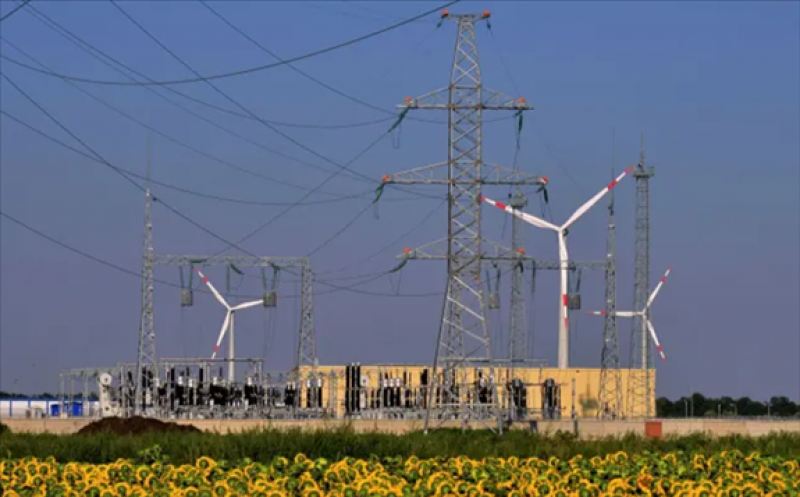Russia’s Rosatom is hoping to tap a new wave of demand for its products as countries around the world prepare to shift to low-carbon fuels.

The state-run nuclear monopoly, responsible for 76 per cent of global nuclear technology exports, is looking to become a leader in the global energy transition, first deputy director Kirill Komarov told the Financial Times. The company, which operates 36 reactors in 12 countries, is stepping up development of small-scale nuclear plants, wind energy, energy storage and green hydrogen projects.
The company, which operates 36 reactors in 12 countries, is stepping up development of small-scale nuclear plants, wind energy, energy storage and green hydrogen projects. “People are no longer indifferent,” Komarov said. “People don’t want to use energy sources that are ecologically uncomfortable. They have demands and vote with money, not only with public support. I don’t think it’s fashionable, I think it is serious.”
“People are no longer indifferent,” Komarov said. “People don’t want to use energy sources that are ecologically uncomfortable. They have demands and vote with money, not only with public support. I don’t think it’s fashionable, I think it is serious.” While some leading global economies, such as Germany, have turned their backs on nuclear energy, others are looking to it to supply a “baseload” of carbon-free electricity at times when weather conditions disrupt renewable sources such as wind and solar.
While some leading global economies, such as Germany, have turned their backs on nuclear energy, others are looking to it to supply a “baseload” of carbon-free electricity at times when weather conditions disrupt renewable sources such as wind and solar. “With all due respect to renewables, and we are involved in this business as well, we understand someone has to ensure the baseload,” Komarov said.
“With all due respect to renewables, and we are involved in this business as well, we understand someone has to ensure the baseload,” Komarov said. The Russian government is considering classifying nuclear energy as among the “green” activities it is looking to stimulate to counter climate change. China and the US are also banking on nuclear power to help them meet their emissions targets. The EU is set to decide this year on whether to classify nuclear power as a potential green investment.
The Russian government is considering classifying nuclear energy as among the “green” activities it is looking to stimulate to counter climate change. China and the US are also banking on nuclear power to help them meet their emissions targets. The EU is set to decide this year on whether to classify nuclear power as a potential green investment. Nuclear accounts for a fifth of all energy supply in Russia, according to Rosatom, the country’s largest energy group.
Nuclear accounts for a fifth of all energy supply in Russia, according to Rosatom, the country’s largest energy group.
The company has branched out from its pure atomic roots. It opened Russia’s two biggest wind farms last year and is also planning at least two large green hydrogen projects in the country.
It is also looking to expand geographically by entering more developing nations in need of affordable power.
The group expects its revenue to triple to Rbs4tn ($56bn) by 2030, 40 per cent of which will come from new lines of business.
Rosatom launched the world’s only active floating nuclear power plant in 2019 and plans to replicate the technology for use in remote areas and smaller nations.
“African countries want these plants, some island nations are considering it,” Komorov said. “It doesn’t have to be for distant areas, it can be done for small countries with small energy systems.”
The company also sees potential for the smaller plants in Europe given a trend for decentralisation, with some states considering small-scale reactors despite well-developed national grid systems, he added.
Rosatom has continued to supply uranium to Europe and the US despite Russia’s relations with the west deteriorating in recent years.
“Rosatom doesn’t play political games,” Komarov said. “I don’t see any restrictions or problems so far. I think everyone understands that nuclear power is that sensitive area of human activity where one must think twice before imposing any restrictions.”